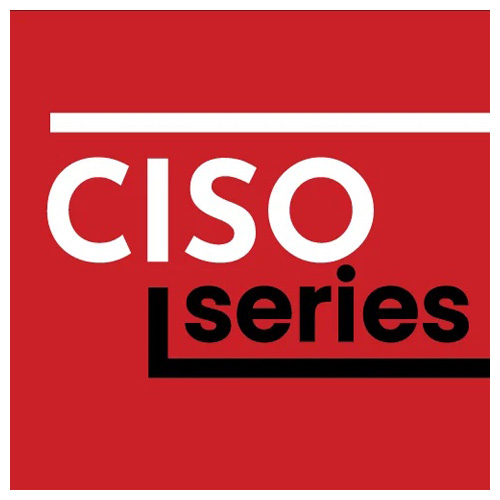Are you keeping up with the rapid changes in the cybersecurity job landscape? As businesses increasingly rely on digital platforms, the demand for skilled cybersecurity professionals continues to grow. In this week’s review, let’s take a closer look at the education requirements for cyber jobs, recent vulnerabilities affecting companies, and how you can better prepare for a career in this vibrant industry.

This image is property of cisoseries.com.
Understanding Cyber Job Education Requirements
As you consider a career in cybersecurity, understanding educational pathways is crucial. Employers often look for candidates with specific qualifications and knowledge that demonstrate proficiency in this field.
Formal Education: The Building Blocks
Most cybersecurity roles require formal education. A bachelor’s degree in fields such as computer science, information technology, or cybersecurity is often the minimum requirement. Some roles, particularly those at advanced levels, may require a master’s degree. Here’s a quick breakdown of typical educational paths:
| Level of Education | Common Degrees | Typical Duration |
|---|---|---|
| Associate Degree | Cybersecurity, IT | 2 years |
| Bachelor’s Degree | Computer Science, Information Tech | 4 years |
| Master’s Degree | Cybersecurity, Information Security | 1-2 years |
While formal education provides a solid foundation, it’s important to remember that cybersecurity is an ever-evolving field. Continuous learning and skill development are essential to keep up with emerging threats and technologies.
Certifications: Validate Your Skills
In addition to formal education, certifications play a significant role in enhancing your employability in cybersecurity. Many employers value professional certifications as a way to validate your skills and knowledge. Here are some popular certifications you might consider:
| Certification | Description | Recommended Audience |
|---|---|---|
| CompTIA Security+ | Entry-level certification covering basic security concepts | Beginners |
| Certified Information Systems Security Professional (CISSP) | Advanced certification demonstrating deep knowledge of cybersecurity | Experienced professionals |
| Certified Ethical Hacker (CEH) | Focuses on penetration testing and ethical hacking techniques | Aspiring ethical hackers |
| Certified Information Security Manager (CISM) | Management-focused certification for cybersecurity professionals | IT managers |
These certifications are not just letters on your resume; they serve as indicators of your dedication and expertise in the field.
Skills Required for Cybersecurity Positions
As you venture into cybersecurity, you’ll want to build a robust skill set. Here are essential skills that recruiters often seek:
- Technical Skills: Understanding networking, programming, and operating systems.
- Analytical Skills: The ability to analyze threats and data patterns.
- Problem-Solving Skills: Creative and effective solutions to security incidents.
- Attention to Detail: Minimizing risks often requires thorough and detailed examination.
- Communication Skills: Whether writing reports or conducting training, clear communication is vital.
By honing these skills, you will position yourself as a competitive candidate in the job market.

This image is property of cisoseries.com.
Recent Cybersecurity Events You Should Know About
Staying updated on cybersecurity news is important, not just for knowledge but for understanding the implications of current events on the job market and education needs.
Citrix RCE Flaw Under Active Exploitation
One significant event this week is the discovery of a critical remote code execution (RCE) vulnerability in Citrix NetScaler ADC and Gateway devices. The vulnerability has affected over 28,000 devices globally, with a large percentage located in the U.S. This incident underscores the importance of timely patching and could inspire potential workers to understand the importance of vulnerability management, an essential unit in cybersecurity education.
Steganography Revived in AI Attacks
Researchers have revived an old tactic, steganography, within the context of AI. This technique involves hiding malicious instructions in standard images, revealing the growing sophistication of cyber threats. Comprehending these modern attack methods can help you understand the current landscape and the skills you need to develop.
Telecom Security Breaches
Another noteworthy issue involves South Korea’s SK Telecom, which suffered a substantial breach, leading to a significant fine due to poor privacy measures. The breach exposed data of millions, highlighting the potential consequences of neglecting cybersecurity protocols. For you, this could serve as a case study in cybersecurity education that emphasizes the need for proactive measures and regulatory compliance.
Propaganda and Recruitment Methods
Recent reports from Anthropic show how certain threat actors use generative AI for malicious purposes, including creating convincing identities to gain employment. This aspect of cybersecurity signifies the necessity for educators to integrate real-world threats into curriculums to prepare future professionals adequately.

This image is property of cisoseries.com.
Opportunities and Trends in Cybersecurity
As you think about a career in cybersecurity, it’s essential to recognize emerging trends and areas of opportunity.
Growth of Remote Work
The shift to remote work has led to a higher demand for cybersecurity experts who can secure home networks and cloud-based services. Businesses seek professionals who understand both cybersecurity protocols and remote work dynamics.
Increasing Importance of Soft Skills
While technical skills get a lot of focus, organizations are increasingly valuing soft skills. The ability to communicate effectively with non-technical stakeholders can set you apart from other candidates. Cultivating skills such as teamwork, leadership, and customer service will improve your attractiveness in the job market.
The Rise of Cybersecurity as a Service (CaaS)
Many businesses are opting for outsourcing their cybersecurity needs to specialized firms, creating opportunities for security consultants and managed service providers. By positioning yourself in this market, you can specialize in tailored security solutions for different types of businesses.
Internships and Hands-On Experience
Internships are a vital step in entering the cybersecurity job market. They provide practical experience that complements your education. Many organizations value hands-on experience that interns bring, making it easier for you to secure a position after graduation.

This image is property of media.cisoseries.com.
Networking and Community Involvement
Joining professional organizations can be invaluable. Networking not only opens doors but also helps you stay informed about industry trends and job openings.
Attending Cybersecurity Conferences
Events like BSides, Black Hat, and DEF CON are great opportunities to meet industry professionals and learn about the latest advancements. Engaging in these environments enriches your understanding and creates valuable connections that can aid your career.
Online Communities and Forums
Engaging in online communities can also foster relationships and keep you connected. Platforms such as LinkedIn, cybersecurity subreddits, and Discord servers dedicated to security-related discussions can be quite beneficial to learn about the field and job openings.
For example:
- LinkedIn Groups: Engage with various groups on LinkedIn focused on cybersecurity to share insights or job postings.
- Subreddits: Participate in discussions on subreddits like r/cybersecurity and r/netsec where professionals share advice and job leads.

This image is property of cisoseries.com.
Final Thoughts: Preparing for a Cybersecurity Career
Your journey into cybersecurity can be both exciting and rewarding. It requires dedication and continuous learning. Understanding the educational requirements, networking, certification paths, and keeping abreast with industry trends will empower you as you advance your career.
As we’ve seen through this week’s events, the landscape can shift rapidly, making it crucial to remain adaptable and informed. By investing time and effort into your education and actively engaging with the cybersecurity community, you’ll be well-equipped to meet the challenges of this dynamic and important field.
So, why not take the first step today? Start researching educational programs or reach out to professionals in the community to learn more about what cybersecurity can offer.